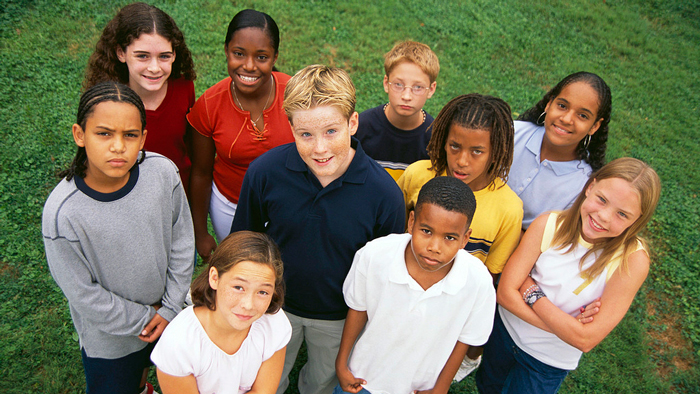How to lead change on Intercultural Understanding
By Kurt Mullane, Executive Director, Asia Education Foundation
Intercultural Understanding is an important part of living in the twenty-first century. It helps students become responsible local and global citizens, interacting and engaging with others in a respectful way.
In January, the Asia Education Foundation (AEF) delivered its inaugural Masterclass on Intercultural Understanding (Opens in a new window), held at the Islamic Museum of Australia. Bringing together over 60 teachers, school leaders and education professionals from across the country, we spent the day exploring cultural diversity and the role of teachers in helping students navigate the complex and interconnected world around them.
Here are ten key insights that emerged from dialogue on the day.
1. Schools and diversity are inseparable
Dealing with diversity is a daily reality in all Australian schools regardless of location, type or demographic. The social, cultural and economic backgrounds of our students are as diverse as their learning styles, needs and ambitions. Similarly, the perception that members of a school community approach interpersonal relations and moral and ethical issues homogenously, even in schools with a religious or special purpose mandate, is misplaced.
2. Multicultural backgrounds are increasingly common
Our classrooms are full of students carrying 'hyphenated identities' drawing on many elements of their social, cultural and personal lives. This reflects a worldwide phenomenon in which a sense of a multi-faceted identity is increasingly common. This is a new reality to which educators are adapting.
3. World events shape young lives
Global ethnic conflict, population shifts, migrations, political transformations, shifting economic influences and technology are profoundly reshaping the lives of every young Australian. These changes mean different things to different people and varying degrees of change comfort or discomfort plays out in school communities.
4. We need to actively manage diversity
While many schools focus on the 'benefits' of diversity, much less emphasis is placed on what's required to manage diversity. Understanding how to safeguard against social exclusion, racism, prejudice, disconnection and intercultural disruption is a cornerstone of positive citizenship and deserves more focus in schools.
5. We need to talk about difference
Educators are often drawn towards teaching about what's similar and of shared interest or value between different cultural groups rather than points of divergence. Understanding difference and how to deal with it positively is one of the greatest capabilities we can support students to develop. That won't happen if difficult conversations about difference are not cultivated in classrooms.

6. Students thrive when they feel secure
Supporting students to deal positively with diversity and develop intercultural understanding has a social benefit for Australia. It's now well understood that students learn best when their sense of wellbeing is secure, when they can see, hear and contribute their own contexts within a culturally inclusive curriculum. We also know that negative intercultural experiences have a detrimental impact on student social and emotional health.
7. Expert support is available
Expertise is available to assist schools affirm the value of diversity: from within the school community, via external specialists in intercultural relations and by learning from other schools creating learning environments respectful of diversity. Schools that 'do diversity' well invariably access this type of support.
8. There are tactics that work
Frameworks (Opens in a new window) describing and monitoring development of intercultural understanding validate the work a school undertakes in this area. They provide a mechanism to guide and acknowledge the efforts teachers, school leaders and other members of the school community take to build respect for diversity.
9. There's still work to be done
There is a shortage of quality learning and teaching materials aligned to curriculum at primary and secondary school levels addressing racism, intercultural tension, prejudice, exclusion and intolerance. These gaps need to be filled.
10. Collegial dialogue is key to progress
Engaging in dialogue, or 'teacher-talk', about diversity and intercultural issues is a powerful personal and professional learning experience for school educators. Similarly, it's through lived and supported experiences of dealing with difference that accelerates the development of intercultural understanding among students. Both of these practices are evident in schools that have built learning environments that value diversity.
Indeed, it's clear that more work needs to be done across all Australian schools in the development of respect for the benefits of diversity. It was exciting to see so many educators interested and passionate to lead positive change in their schools and the broader community.
The AEF will deliver two more Intercultural Masterclass sessions in both Sydney and Melbourne this April. Find out more via the Intercultural Understanding Masterclass.
Watch highlights from the inaugural Melbourne Intercultural Understanding Masterclass.
AEF acknowledges the outstanding contributions made to our inaugural Summer School by Professor Emeritus Gary Bouma AM, Dr Sherene Hassan, Dr Shakira Hussein, Maha Sukkar, Dr Jessica Walton, Toltu Tufa, Rabbi Zalman Kastel, and the expert staff from the Islamic Museum of Australia.
Acknowledgements
Images: Faces of Diversity (Opens in a new window) by Richie Diesterheft (Opens in a new window) (CC BY-SA 2.0 (Opens in a new window)) [Cropped]; Group of Friends Smiling (Opens in a new window) by hepingting (Opens in a new window) (CC BY-SA 2.0 (Opens in a new window)) [Cropped].This article originally appeared on Splash ABC (Opens in a new window)